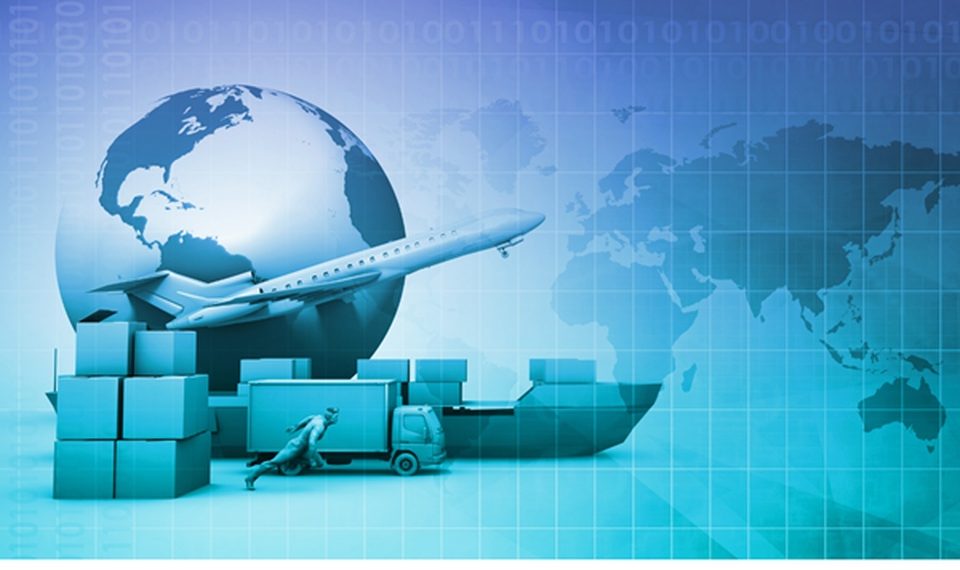How Does Artificial Intelligence Blockchain And Supply Chains Work?

The world continues to teeter on the brink of the effect of the COVID-19 pandemic. Human activities have gone into a tailspin. Industries face so many issues because of the disruptions within the ecosystems that keep them running.
Supply chains all over the world have gone into disarray. The global economy is facing a haphazard recovery with many existing gaps. Artificially intelligent supply chain ecosystems are still having efficiency issues. Business is topsy-turvy, and everything gets delayed.
Could AI Improve The Global Supply Chains?
Supply chains have had their various issues pre-COVID. Effecting slight changes to variables determine optimal deliveries to sourcing supply chains and the creation of value chains. These optimal deliveries enabled super lean and super-fast supply chains that delivered profits repeatedly. Today, the reverse is the case. Supply chains have become unpredictable and unreliable.
The current malaise has created gaps. Global supply chains get enhanced by introducing artificial intelligence.
Artificial intelligence significantly increases the profitability of manufacturing supply chains by enhancing efficiency. In regular systems, perfection does not get achieved with artificial intelligence alone. Supply chains are beset with all kinds of problems that singular artificial intelligent systems cannot handle. The fluid nature of global systems enables anomalies to clog supply chains and reduce functionality.
Having allied technologies within ecosystems compensates greatly for the inaccuracies that rock the world right now. Emerging technologies like blockchain technology solve these problems and then some.
The Role of Blockchain Technology in Supply Chains
Blockchain technology has changed virtually every industry and field of human activity. The immutable nature of blockchains allows for the permanence of records kept. Information gets stored in blocks and allows for improved tracking of activities, most especially when gaps occur within supply chain systems. Gap sources get tracked and resolved quickly.
Artificial intelligent blockchains can create new paradigms for global supply chains. On-chain oracles within blockchains provide real-time data for split-second decisions and actions. On-chain oracles prevent issues like trade credit contagion. Oracles provide parties within such supply chains with an accurate estimate of supply cycle completion.
Within the web3 space, services such as Oraichain provide the best options for deploying artificial intelligence on blockchains that have transformed supply chains and their logistics aspects. Oraichain offers a complete ecosystem of products and services, considering the critical nature of on-chain oracles and their deployments across supply ecosystems.
Its oracle AI component gives smart contracts access to application programming interfaces (API) that allow its use-cases. It works by enabling route adjustments, providing feedback mechanisms for supply chain gaps, and giving optimized options for split-second decision-making, among others.
https://twitter.com/oraichain/status/1479476270345768961
Oraichain’s data hubs provide data warehousing, testing, and training. It enables AI data model developments and adjustments as global logistics models adapt to the new normal. Oraichain comes loaded with a complete AI marketplace that offers solutions, models, architecture, models and their source codes, user interface designs, application hosting, and so on. These components are ready to give ecosystems the tools to create new frameworks that can solve the many problems within logistics ecosystems.
How Artificially Intelligent Blockchains Are the Future
Third-generation blockchains provide the best solutions for the business world post-COVID. Supply chains have moved beyond shutdowns and present new challenges. Challenges have solutions ready in artificially intelligent web3 applications.
These AI blockchains allow for optimal choices. Choices reduce the errors occurring across supply chains to a minimum. With the various benefits web3 technologies have to offer, global businesses have a first-mover advantage if they deploy AI blockchains.
The issues of security, immutability, and data accuracy create new avenues for businesses to make increased revenues. Artificially intelligentweb3 blockchains and ledgers help businesses offset the costs associated with constant upgrades and security patches centralized technologies need to keep running.
Businesses of tomorrow understand the power of AI Blockchains and deploy them to their advantage. Global supply chains don’t need to onboard new software once they deploy AI on blockchains. Participants in a typical supply chain become nodes, and these nodes interact with each other, the blockchain, data oracles, and other web3 components seamlessly.
Data optimization from testing and training models is also quicker on these new blockchains, enabling faster reaction times. AI blockchains improve automation with model discovery from data stored within these blockchains as new models indicate potential errors, making these issues easier to discover before problems and issues arise.
With new automated processes in several supply chain components emerging, AI blockchains improve the information processing capabilities of these automated models. The blockchains enable these models to start and terminate each aspect of the supply chain without physical interaction.
They are also creating new business models that will lift the world out of the current chaos humanity finds itself in. It is more of a question of the adoption of AI blockchains than the benefits available for everyone to see.

